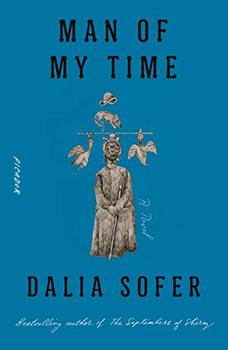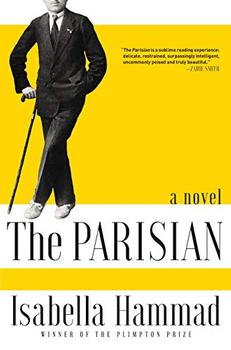Summary | Excerpt | Reviews | Beyond the book | Read-Alikes | Genres & Themes | Author Bio

From the bestselling author of The Septembers of Shiraz, the story of an Iranian man reckoning with his capacity for love and evil.
Set in Iran and New York City, Man of My Time tells the story of Hamid Mozaffarian, who is as alienated from himself as he is from the world around him. After decades of ambivalent work as an interrogator with the Iranian regime, Hamid travels on a diplomatic mission to New York, where he encounters his estranged family and retrieves the ashes of his father, whose dying wish was to be buried in Iran.
Tucked in his pocket throughout the trip, the ashes propel him into a first-person excavation―full of mordant wit and bitter memory―of a lifetime of betrayal, and prompt him to trace his own evolution from a perceptive boy in love with marbles to a man who, on seeing his own reflection, is startled to encounter someone he no longer recognizes.
As he reconnects with his brother and others living in exile, Hamid is forced to reckon with his past, with the insidious nature of violence, and with his entrenchment in a system that for decades ensnared him.
Politically complex and emotionally compelling, Man of My Time explores variations of loss―of people, places, ideals, time, and self. This is a novel not only about family and memory but about the interdependence of captor and captive, of citizen and country, of an individual and his or her heritage. With sensitivity and strength, Dalia Sofer conjures the interior lives of the "generation that had borne and inflicted what could not be undone."
Covering a range of decades but set against the political backdrop of the 1979 Iranian Revolution, Dalia Sofer's latest novel, Man of My Time, is a quietly powerful retrospective look at the accumulation of moments and choices that form a life. Sofer's prose can at times be more telling than showing; however, overall this works for the story. She has a way of slicing right to the heart of a scene, utilizing unexpected and profound imagery that reminds me a bit of Persian poetry, in which multiple lines might approach a theme in different ways...continued
Full Review
(758 words)
This review is available to non-members for a limited time. For full access,
become a member today.
(Reviewed by Kelly Hydrick).
 Dalia Sofer's novel Man of My Time spans from the mid-20th century to the present day. Set in both Tehran and New York City, it encompasses the decades leading up to the 1979 Iranian Revolution—when Iranians from both Islamist and leftist organizations overthrew the Western-backed Shah, Mohammad Reza Pahlavi—as well as the revolution itself, its aftermath and the modern geo-political situation between the U.S. and Iran. While reading, I found myself wondering about the Shah's regime in Iran before the rise of theocratic government.
Dalia Sofer's novel Man of My Time spans from the mid-20th century to the present day. Set in both Tehran and New York City, it encompasses the decades leading up to the 1979 Iranian Revolution—when Iranians from both Islamist and leftist organizations overthrew the Western-backed Shah, Mohammad Reza Pahlavi—as well as the revolution itself, its aftermath and the modern geo-political situation between the U.S. and Iran. While reading, I found myself wondering about the Shah's regime in Iran before the rise of theocratic government.
Mohammad Reza was educated in Switzerland as a teenager and became Shah during World War II when the Allies deposed his father, Reza Shah Pahlavi, who had connections with Germany and had ...
This "beyond the book" feature is available to non-members for a limited time. Join today for full access.

If you liked Man of My Time, try these:

by Ava Homa
Published 2021
The unforgettable, haunting story of a young woman's perilous fight for freedom and justice for her brother, the first novel published in English by a female Kurdish writer.

by Isabella Hammad
Published 2019
A masterful debut novel by Plimpton Prize winner Isabella Hammad, The Parisian illuminates a pivotal period of Palestinian history through the journey and romances of one young man, from his studies in France during World War I to his return to Palestine at the dawn of its battle for independence.
Tread softly because you tread on my dreams.
Click Here to find out who said this, as well as discovering other famous literary quotes!